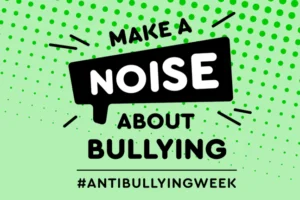The Cybersurvey – carried out by Youthworks in partnership with Internet Matters – is the largest and most robust survey of its kind in the UK, with nearly 15,000 children aged 11-17 taking part across 82 schools across the country.
The pressure to be perfect on the rise among young people
Its latest report, published today, reveals that the numbers of children viewing harmful content online dramatically increased over a period of four years, between 2015 and 2019, with particular concern relating to body image and the “pressure to look perfect”.
An alarming new trend has emerged among children – particularly boys – aspiring to muscular bodies and six packs, thought to be fuelled by the images they see and want to copy.
Nearly a third of boys (29%) said they had been exposed to content encouraging them to build their bodies up – with many urged to use substances that might not be safe. The most likely group to be viewing the content was 13-year-old boys.
Those who “often” viewed content encouraging them to bulk up their bodies had lower self-respect than those who never saw this type of content, the report found.
They were also less likely to say ‘I feel happy with myself’, 69% in contrast to 85% of those who never look at this kind of material.
Young people are seeing more harmful content online
In the UK-wide survey of 11-17-year-olds, one in four (25%) young people said they had seen pro-suicide content– up from 11% in 2015. Almost one in three (28%) girls visited sites or saw messages that “pressure me to be too thin”.
Meanwhile, one in eight children (13%) saw content about self-harm.
Over a quarter (27%) of children said their online life influenced how they tried to look, more than half (53%) said they were more confident behind a screen, and 21% admitted their online life made them always or sometimes “unhappy about how I look”.
What’s positive about young people’s life online?
The report, “In Their Own Words – The Digital Lives of Schoolchildren”, also highlighted positive experiences – with 37% of those surveyed saying they feel good because of their time spent online, 52% saying their online life has helped them find and talk to people like them most or some of the time. More than eight out of 10 (84%) said their online life helped them relax after school.
However, it found too few children were following online safety advice taught in school or from their parents, especially as they got older.
While 11-year olds were the most likely age group to follow online safety advice, by the age of 15, when risks are higher, only 46% always followed the advice.
And while two-thirds of teens said they would turn to their parent or carer if they had a problem online, 50% said their parents “don’t understand enough about online issues”.
Adrienne Katz of Youthworks, who co-authored the report with Aiman El Asam of London’s Kingston University, said: “The big message from this report is that harmful content has overtaken cyberbullying as a major threat to young people. Messages, comments, adverts and ideal bodies seen online can combine to make teenagers obsess about their bodies. It is all too easy to buy products promising perfection.
“Given how much they love and benefit from the online world, we owe it to young people to help make it a safer experience. Outdated online safety advice is not going to work in this new decade and suicide content should be rapidly addressed.”
Carolyn Bunting, CEO of Internet Matters, said: “Harmful content has become one of our biggest concerns in the online space, with numbers of children viewing this material increasing over the last four years.
“With too few children following online safety advice they’ve been taught in school or from their parents, especially as they get older, a new dialogue is needed for children in their mid-teens so we can engage them more with online safety.
“No parent wants their child to be making life-changing decisions having been exposed to this content, so it’s vital parents get involved with their children’s digital lives to understand what they are seeing and provide support where needed.”
Dr Linda Papadopoulos, child psychologist, said: “While seeing your children take up fitness and look after their bodies must of course be encouraged, there are some obvious signs to look out for as a parent on when this may be becoming obsessive or even a cry for help.
“Talking with them about where they are getting their information from regarding health and fitness is critical, as is encouraging them to look out for unhelpful material they may be coming across on social media or websites. Starting a conversation about where they are deriving their ‘shoulds’ and ‘have to’s’ from when it comes to appearance is useful as this will allow them to think more critically about body image and identity.
“Teenage years are a crucial time in finding one’s identity and this is often played out online and can become impacted by likes, follows and the social equity derived from having others engage with posts and photos. It’s vital therefore to talk to your children about their online life and let them know you’re there for them if they need to talk to you, so you can pick these kinds of problems up at the earliest opportunity and seek professional advice if you need to.”
Together with Instagram we’ve produced the Pressure To Be Perfect toolkit for parents and carers which gives advice on many of the issues highlighted in the report, including positive online behaviour on social media and balancing children’s time.






